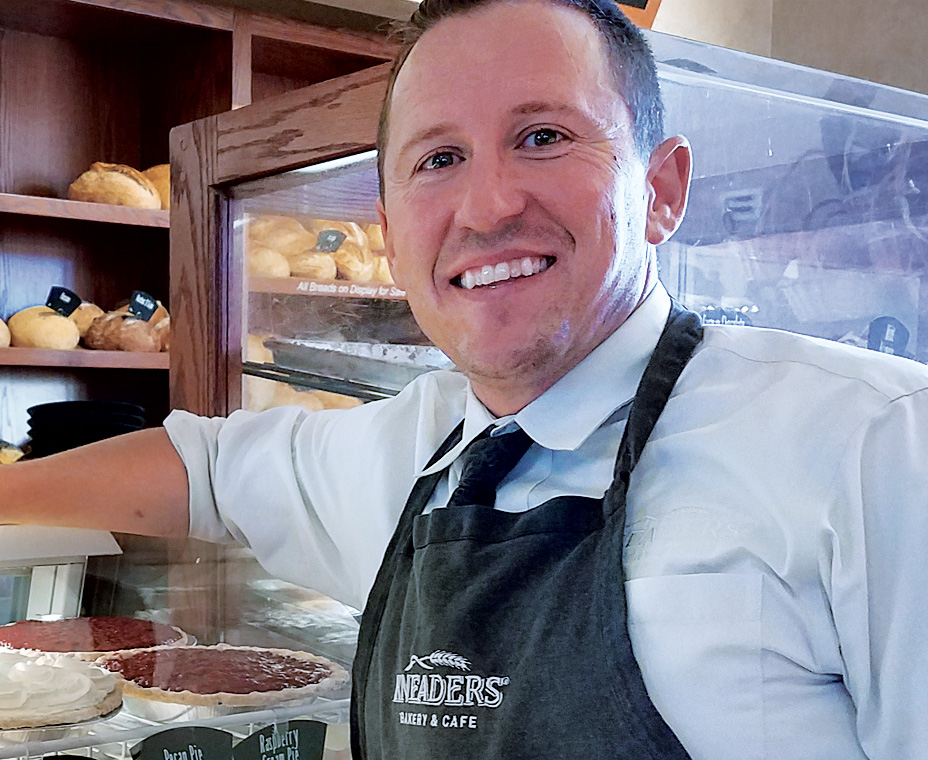Private-equity investments have been bountiful in recent years, with big firms investing in small, emerging concepts. But while an influx of cash can help businesses soar to new heights, some companies are changing the formula with a hybrid model that’s more hands-on, combining the roles of investor, incubator, and master franchisee.
Scott Mortier is president of one such enterprise. Earlier this year, he and David Lopez founded Miami-based Franchise Whales, which invests in concepts and leverages shared efficiencies between them to fuel growth.
Franchise Whales invests in a brand and takes over franchise development, not only finding qualified franchisees, but also providing them with support services like strategic planning, marketing, management, legal services, architecture services, operations training, public relations, and human resources.
One reason this model works better than the traditional franchise, Mortier says, is that the interests of a franchise broker and a restaurant founder don’t always align. “They are just interested in their commission,” Mortier says. “They sell to whomever and whatever and then they are gone, and they take 100 percent of the franchisee fee as their commission.”
One brand in Franchise Whales’ portfolio is Gyroville. The concept’s COO David Kurlander says the brand was “going nowhere with franchising” before Franchise Whales came along.
“The first thing we’re getting from the Franchise Whales is the right candidates,” Kurlander says. “A regular broker sends unqualified leads just to make a buck, but the Franchise Whales are invested in the franchisee, so they weed out those who are not serious candidates.”
Mortier says buying 30 percent of a concept is the company’s sweet spot.
“Typically we look for brands where the founder is involved in the day-to-day operation of the business; somewhere between the 10–50-unit spot,” he says. “We look for partners who know what they don’t know. They trust us and we trust them.”
The Franchise Whales portfolio of fast casuals includes Gyroville, Froots, Tikiz, and Miami Grill. When a new brand comes on board, Mortier says, “They immediately have peers they can lean on—people who maybe two years ago were where they are today and can share their experience.”
Utah-based Four Foods Group is another restaurant development company that both invests in brands and incubates them, but it operates somewhat differently from Franchise Whales.
Four Foods Group founders Andrew and Shauna Smith put together a platform of experienced individuals to provide operators of Kneaders Bakery & Café stores the support they needed to be successful. In 2008, Four Foods Group began with one Kneaders location and now operates 43 units with franchisee partners across four states, with 11 more under development.
The incubator-investor achieved this growth by giving franchisee partners a stake in the business. Each operator invests $100,000 and gets a 30 percent equity stake in a Kneaders store. Four Foods Group handles real estate acquisition, equipment sourcing, staff recruiting and training, legal services, and other operational aspects of the business.
“The operator is an equity owner,” Andrew Smith says. “There’s a corporate mentality that you have to own it all at the top. We believe you have to trust people and let them feel ownership. If you give people equity, they will then bend over backwards for you.”
Four Foods Group is partnering with another Utah concept, R&R Barbeque, as its next brand to grow. The announcement came earlier this year, after Four Foods raised $35 million in capital.
Whether offering European-style baked goods or smoked meats, restaurateurs who are busy serving guests all day can experience the pitfall of financial oversight.
“It you’re running with your crew all day and trying to get out of there at night to spend time with your family, the things you don’t get to are finances, sales taxes, property taxes, and paying vendors,” Smith says. “We take that off their hands.”
He adds that Four Foods Group uses best-in-class accountants, performs preventive maintenance, and negotiates the best service and product deals with vendors.
Danny Deaton has been a franchise-operating partner at Kneaders in West Jordan, Utah, for seven years.
“We are partners who wake up in different places with the same goal,” Deaton says of his relationship with Four Foods Group. “It’s an interesting dynamic where people like myself can get into a business this size and magnitude because of this partnership.”
Smith says it costs about $2.7 million to build a Kneaders Bakery and Café from the ground up, so the $100,000 investment opens up ownership to more candidates.
Deaton operates the front line of his Kneaders store, while human resources, maintenance, and finances are handled by Four Foods Group.
“I’ve seen people in this same industry trying to do it on their own and failing,” he says. “Any business is stressful, but running a restaurant is something else, because food is always being used and consumed.”
The operator takes a salary to run the store, and financial dividends and equity are split between the operator and Four Foods Group. Deaton says the partnership with Four Foods Groups provides incentive to stay in business for the long haul.







